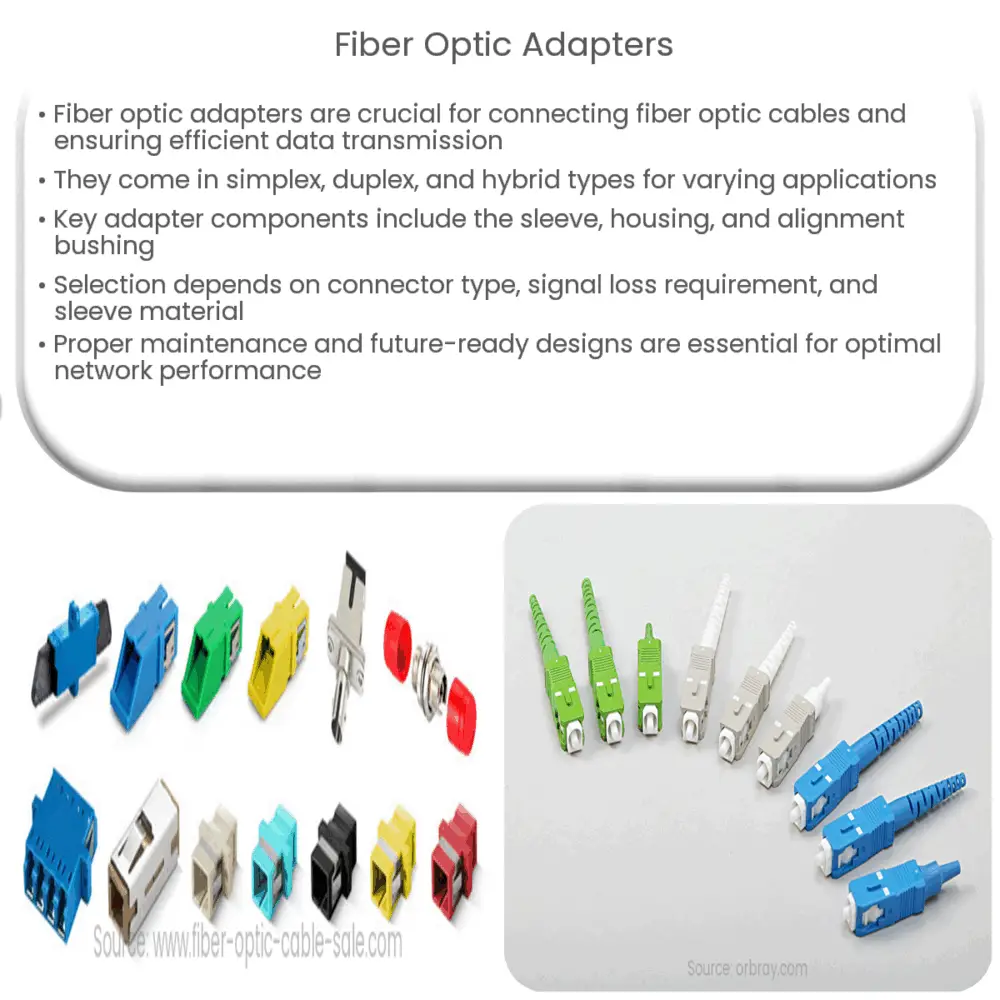Explore the essentials of fiber optic adapters, their types, benefits, selection, maintenance, and their role in future tech.

Understanding Fiber Optic Adapters
Fiber optic adapters, also known as couplers, are essential components within fiber optic networks. They serve as interfaces for connecting fiber optic cables, facilitating the transmission of light signals between two separate fiber optic lines.
Types of Fiber Optic Adapters
Key Components of Fiber Optic Adapters
Fiber optic adapters are designed with several key components, each with a unique purpose.
Benefits of Using Fiber Optic Adapters
Fiber optic adapters provide several significant benefits. First, they offer an efficient and reliable way of connecting fiber optic cables, thereby ensuring seamless data transmission. Second, these adapters maintain the continuity of the fiber optic link, preventing unwanted data loss. Finally, with their versatile design, they can accommodate various types of connectors, thereby enhancing compatibility within fiber optic networks.
In summary, fiber optic adapters play a crucial role in facilitating efficient data transmission in fiber optic networks. Whether it’s for telecommunication networks, cable television networks, or data centers, these adapters offer a practical solution for connecting fiber optic cables.
Selecting Fiber Optic Adapters
Selecting the right fiber optic adapter depends largely on the specific needs of your fiber optic network. Key considerations include:
Maintenance of Fiber Optic Adapters
Proper maintenance of fiber optic adapters is essential for the longevity and efficiency of your fiber optic network. Regular cleaning of adapters can help prevent signal loss due to dust or dirt accumulation. Furthermore, periodically inspecting and replacing damaged or worn-out adapters ensures continuous and optimal network performance.
Fiber Optic Adapters and Future Technologies
With advancements in technology, the role of fiber optic adapters is evolving. The growing demand for higher bandwidth and the emergence of technologies like 5G and Internet of Things (IoT) necessitate the development of advanced fiber optic adapters that can support these trends. As such, these devices are expected to be a cornerstone in the next-generation communication networks.
Conclusion
In conclusion, fiber optic adapters are indispensable components of modern fiber optic networks. They offer reliable and efficient connections between fiber optic cables, ensuring seamless data transmission. By selecting the right adapter and maintaining it properly, you can optimize the performance of your network. Moreover, as technology continues to evolve, fiber optic adapters are poised to play an increasingly important role in the networks of the future. Whether you’re a network engineer or a tech enthusiast, understanding fiber optic adapters is key to unlocking the full potential of fiber optic technology.

